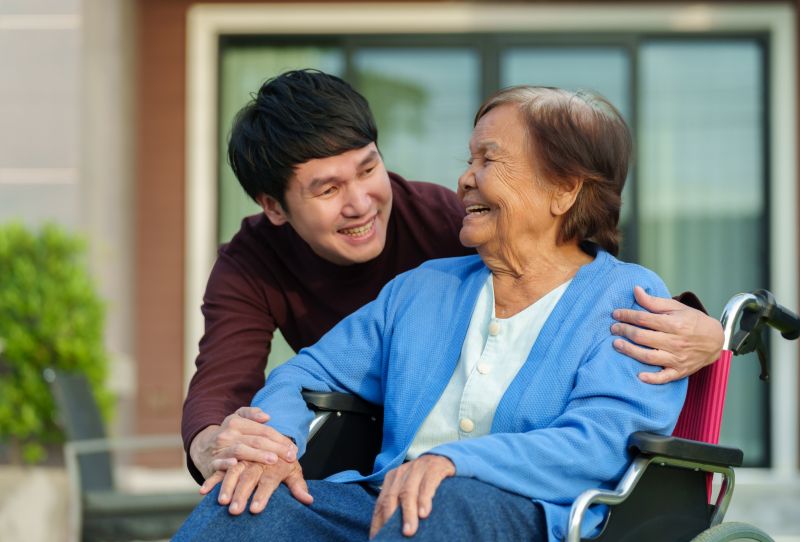The Importance of Resilience and Adaptability for Caregivers Abroad
iSavta | 07.08.2023

Caregiving is a demanding and noble profession that requires compassion, empathy, and dedication. When caregivers venture abroad to provide care in a foreign country, they face unique challenges that test their resilience and adaptability. Working in unfamiliar environments, navigating cultural differences, and managing language barriers can be overwhelming. However, the importance of resilience and adaptability for caregivers abroad cannot be overstated. These qualities not only help caregivers cope with the challenges but also enable them to provide high-quality care and make a positive impact on the lives of those they serve.
Resilience, the ability to bounce back from adversity, is a crucial trait for caregivers working abroad. Caregivers often find themselves in unfamiliar and unpredictable situations that can be mentally and emotionally challenging. They may encounter different cultural practices, unfamiliar healthcare systems, and language barriers, which can add layers of complexity to their caregiving responsibilities. In such situations, resilience allows caregivers to maintain their focus, persevere through difficulties, and adapt to changing circumstances. It helps them stay committed to their purpose and find creative solutions to problems. Resilient caregivers are more likely to overcome setbacks and provide consistent care, ensuring the well-being of their patients.
Adaptability is another essential quality for caregivers working abroad. Adapting to new environments, cultures, and work settings is crucial for successful caregiving. Caregivers must be open-minded and flexible, willing to learn and adapt their practices to meet the needs of the individuals they care for. Each culture has its own unique beliefs, traditions, and expectations regarding healthcare and caregiving. By embracing and respecting these differences, caregivers can build trust and rapport with their patients and their families. Adaptable caregivers can quickly learn and incorporate local customs and practices, ensuring that their care is culturally sensitive and appropriate. This flexibility enables them to provide personalized care and establish strong connections with the people they serve.
Working abroad as a caregiver often means leaving behind familiar support systems, friends, and family. This isolation can take a toll on the mental and emotional well-being of caregivers. Resilience plays a vital role in helping them cope with feelings of loneliness and homesickness. By developing coping strategies, such as seeking social support, maintaining regular communication with loved ones, and engaging in self-care activities, caregivers can effectively navigate these emotional challenges. Additionally, resilience empowers caregivers to stay motivated and positive, even in the face of adversity. This positivity can have a profound impact on the care they provide, as it can uplift the spirits of their patients and create a nurturing environment.
Furthermore, adaptability allows caregivers to embrace diversity and promote inclusivity in their caregiving practices. They can learn from the diverse backgrounds and experiences of their patients, gaining a broader perspective and enhancing their cultural competence. This adaptability extends beyond the workplace, as caregivers immerse themselves in the local community, learn about its customs, and develop a deeper understanding of the people they serve. By embracing diversity and adapting their approach, caregivers abroad can provide care that is respectful, inclusive, and patient-centered.
Resilience and adaptability are not innate qualities but can be nurtured and developed through experience, reflection, and self-care. Organizations and employers play a crucial role in supporting caregivers abroad by providing training, resources, and a supportive work environment. They can offer cultural competency workshops, language courses, and opportunities for caregivers to share their experiences and learn from one another. Providing access to mental health support and encouraging self-care activities can also contribute to the overall well-being of caregivers. By fostering an environment that values resilience and adaptability, organizations can ensure that caregivers have the tools they need to thrive in their challenging roles.
In conclusion, the importance of resilience and adaptability for caregivers working abroad cannot be overstated. These qualities enable caregivers to navigate unfamiliar environments, embrace cultural differences, and overcome challenges. Resilience allows caregivers to bounce back from adversity, maintain their focus, and provide consistent care. Adaptability empowers caregivers to learn from diverse cultures, personalize their care, and establish strong connections with the people they serve. By fostering resilience and adaptability, caregivers can provide high-quality care and make a positive impact on the lives of those they care for, irrespective of borders or cultural differences.
Read more about Personal Wellness

Personal Wellness











